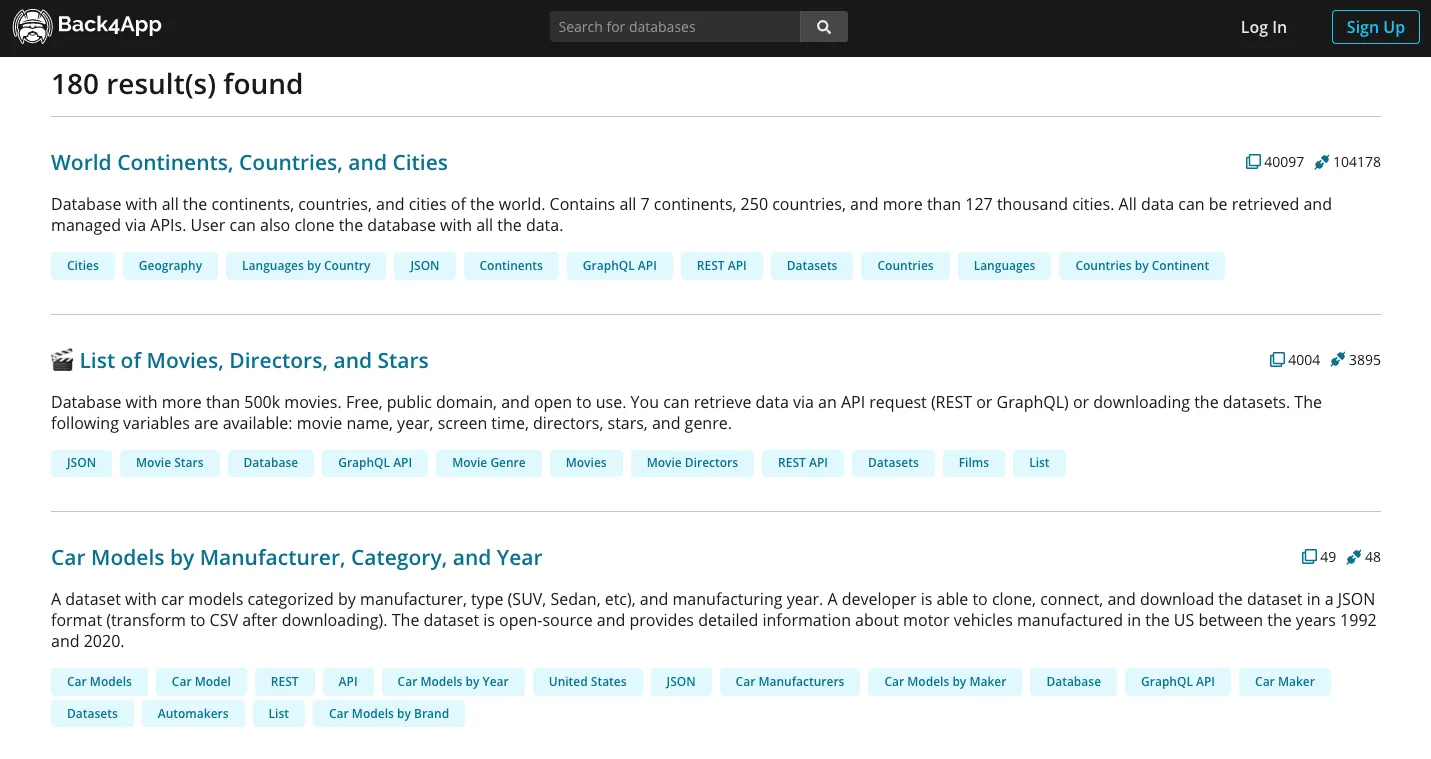Overview
The Database Hub is a collaboration tool where Back4app users can share and use data from the available datasets freely.
The main idea behind the hub is to allow data exchange and make the creation of Apps easier as you will find many pre-loaded datasets that you can integrate and use into your application.
Back4app has already published lots of databases that can help you getting started, such as:

In order to use or share a database, you will need:
- An app created at Back4App
With the Hub, you can clone, connect and share your databases.
Cloning a database means a copy of that database will be made (as in that moment of time) and linked to your Back4app account. That means you will have a full copy available to you, where you can insert, update and delete records as you wish. That also means that new updates made from the database owner will NOT show up in your copy.
Connecting a database, on the other hand, means that your App will access the original database. The clear benefit here is that all updates made by the database owner over time will reflect in your database. This is useful if the database reflects data that changes over time, for instance, a list of the champions of the NBA championship. Every time a new champion enters the database, it will be available to you immediately.
Sharing a database means you will make one or more of your own databases available to other Back4app users. This empowers the community helping people to start out and makes us a stronger community. This also means you can get noticed by other users and promote your own brand/company to others, also, new ideas to improvements can show up from people using your databases over time.
By sharing your datasets with other developers you can :
- Help other people develop their apps using ready-to-use datasets;
- Share your data as a service in an easy-to-use format (APIs - REST & GraphQL, SDKs to more than 13 technologies);
- Build your dataset portfolio;
- Ask for collaboration to build a brand-new dataset;
- Get backlinks from the Back4App Database HUB directly to your website;
By using the shared databases you:
- Start from a pre-loaded source with consistent data
- Ensure data is up to date with the original database
- Give and take feedback from other users on how to make the database better
By cloning the shared databases you:
- Start from a pre-loaded source with consistent data
- Ensure a snapshot of the data is copied to your account so it will not change over time if you don’t want it to
Every time you want to see the available databases you can go to the Database Hub and browse.

Once you find something that interests you, you can enter that database to check its Classes:

You can even enter a Class to check its data

And its Schema

In order for you to test and play around with data before cloning or connecting a shared database, a fully working GraphQL playground is available in the Database Hub.
You can access it going to the API Playground, where you can write and execute queries to ensure the data will fit your needs:

If you find any issues or want to check the issues history for a database or its queries, you can refer to the Issues tab. There you can add new issues by clicking the New Issue button and check for Open or Closed issues.
The owner and other users will be reported about any issues and can take action on those:
